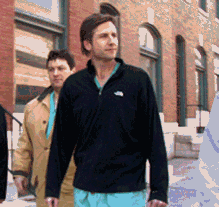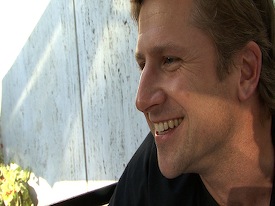Gray area: Not much separates fictional Grey's Anatomy from real-life Hopkins
06/25/08 02:11 PM


Premiering: Thursday, June 26th at 9 p.m. (central) on ABC
Starring: real-life doctors at Baltimore's Johns Hopkins Hospital
Produced by: Terence Wrong
By ED BARK
ABC is cannily advertising Hopkins as the real-life summertime medical drama being watched by the fake docs of Grey's Anatomy.
That's not too much of a stretch. Except that the hit show's stars actually might think they're watching an alternate universe's Grey's Anatomy.
Replete with originally composed music and a soap-ish storyline tied to a hunky resident's troubled marriage, Hopkins is an ABC News production aimed at those who supposedly won't sit still for one of those unadorned, old time religion news docs.
It's eight years removed from the network's acclaimed Hopkins 24/7. And since then, "there has been a revolution within the culture of the hospital," say ABC press materials.
The network's news presentations likewise have undergone a fairly radical transformation. Nightline, absent Ted Koppel, is much lighter on its feet. And ABC's latter day weekly news series now carry Barnum-ish titles such as Primetime: The Outsiders, Primetime: Crime and Primetime: What Would You Do?, which is returning next season.
Hopkins, premiering Thursday, presented in high-definition and scheduled to run for six weeks, mixes state-of-the-art medicine with the out-of-hospital angst of cardiothoracic surgeon Brian Bethea. Since filming he's accepted a position at the Dallas-based University of Texas Southwestern Medical Center.
Bethea, clearly positioned as the show's "Dr. McDreamy," has been married for 13 years to Amber, whom he's known since the sixth grade. They have three daughters, but lately don't seem to be "meshing well," as Brian puts it.
During the course of the first three episodes, he moves into his own apartment and talks with his drinking buddies about the prospects of meeting some "hot nurses." But the Betheas also are trying to reconcile their differences, and Brian clearly doesn't relish the prospect of breaking up his family.
Whether in or out of surgery Hopkins is never too far from composer Matthew Puckett's often verbalized musical interludes. It can get more than a little cloying, in no small part because Grey's Anatomy operates under the exact same procedure throughout its episodes.
Episode two, for its part, ends with middle-aged Brenda Thompson walking in a park with her loving third husband after undergoing life-saving lung surgery. Accompanying lyrics from a female vocalist go like this: "Just you and me and a bright blue sky . . . And I feel so high-i-i." Oh ugh.
Hopkins nonetheless packs plenty of drama under its own power. It can be humorous, too, as when Hopkins' first woman urologist, Karen Boyle, tells viewers about the hospital's tried-and-true "pornography stash."
One of her patients, whose vasectomy she's just reversed, will have to supply in-hospital sperm samples to make sure his weapon is firing properly again. "If they get yucky, we throw them out," she says of the magazines he'll be using.
Episode 1 also introduces elite brain surgeon Dr. Alfredo Quinones-Hinjosa, who two decades ago entered the U.S. illegally to pick fruit in central California. He's come an astonishingly long way since then, but otherwise "I'm the same crazy sonofagun I was 20 years ago," he says.
One of his patients is Michael, whose life has had plenty of bumps of his own making. He has no idea where his two children are after "their mother took off with them years ago," Michael tells the camera.
He's also capable of making a finely rendered paper rose out of a napkin, which he demonstrates. The scene speaks to the talents we all have despite appearances to the contrary.
Hopkins is without narration, save for a weekly Law & Order-esque introduction informing viewers that "inside one of America's greatest hospitals there are endings and new beginnings every day."
They're culled from nearly 1,500 hours of footage, says ABC. Artificial flavoring then is added, but not to the point of invalidating this very ambitious effort. Both the graphically depicted surgeries and the constant mood music can be hard to handle at times. But Hopkins' saving graces are its terrific human interest stories and jaw-dropping medical advances.
Whatever its imperfections, this series still resides at the very highest end of summer's ongoing onslaught of unscripted and often unsightly diversions.
Grade: B+
